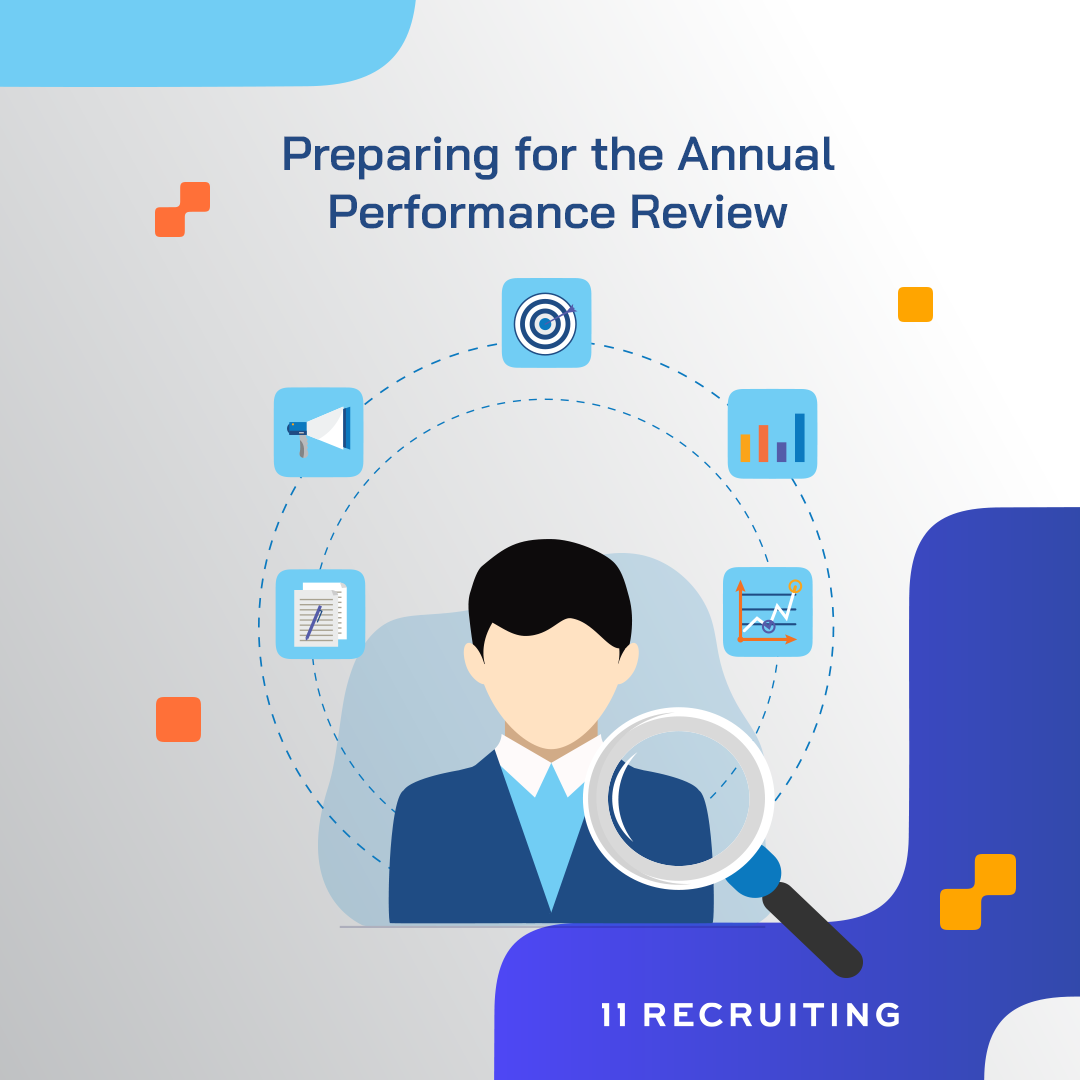
The most competent organizations today recognize that they have to be more concerned with retaining their employees because they see that it is more challenging than ever to recruit talented employees; hence, whether you’re an employer or an employer, an annual performance review is a core human resource tactic in building successful teams. However, whether you’re conducting an annual, quarterly, or monthly performance review, performance discussions can be difficult, which is why this article talks about how to prepare for a yearly performance review.
Tips for Preparing for An Annual Performance Review

An annual performance review can take on a variety of methods. However, regardless of your strategy, here are five essential tips for anyone preparing for an annual performance evaluation.
Discuss performance expectations and goals.
Preparing for an annual performance review starts with the hiring process. Here, the employee is informed and understands what his organization expects from him and how his manager will access his work roles and responsibilities.
A well-written job posting and job description spell out what is expected of the employee, their goals in line with that of the company, and what good performance should look like for the job during the interview process.
Document feedback throughout the year.
It’s often difficult to remember everything that happened (in detail) over a year; hence, without proper documentation, an annual performance evaluation will not be effective. It’s best to document positive and negative events throughout the year, as this makes it easier for employees and employers to give a thorough evaluation that examines their performance throughout the entire review period.
You can have a folder for each employee’s performance that touches on good and bad behavior, customer feedback, attendance records, and anything else about performance expectations and goals. That way, you don’t make an annual performance review based on your recent memory.
Request feedback from colleagues.
Most times, as a manager, you don’t get to work with most of your employees up close, which is why requesting feedback from their colleagues and direct team leaders who work closely with the employee will go a long way during the evaluation process.
During an annual performance review, feedback must remain confidential, informal, and anonymous and should be done regularly to verify and support the manager’s assessment.
Ask for feedback directly from the employee.
In most evaluation processes, employees are often asked to fill out a self-assessment form that focuses on their achievements. So, as an employee, you should use this opportunity to document your thoughts about your role, responsibilities, and perception of yourself within the organization.
During an annual performance review, a self-assessment can help you remind your boss of your overlooked accomplishments and get advanced notice of any blind spots.
You need to consider all the achievements during the past twelve months, how you solved challenges, identify areas of improvement, and suggest areas of professional development. However, don’t overdo it – try to be objective and truthful, and ensure your input is turned in as early as possible before your manager starts writing his review.
Practice using performance review phrases.
The performance phrases you choose to use must be precise and valuable, and they should provide your employee with actionable feedback. These phrases review employees’ overall work performance by highlighting their strengths or weaknesses and offering constructive feedback. During an annual performance evaluation, performance phrases let your employees know how they’re doing at the company and whether there’s room for improvement.
Although providing honest feedback with your performance review phrases is essential, it’s also important to remember that your employees have feelings and are human. Again, make sure the phrases you give focus on their strengths and weaknesses – too positive phrases mean they have nothing to work forward, and too negative phrases leave them less motivated to make changes in their work ethics.
To sum up,
Performance reviews shouldn’t be daunting for managers and employees, even if there is no precise format since every organization has a unique touch. However, for every annual performance evaluation, it’s best to plan and prepare and set expectations and goals ahead of time.
While feedback should be about work behaviors and actions, it should be transparent, offer guidance, objective, future-focused, and not personal. As managers, your performance review isn’t complete without a regular follow-up on employees, as this will allow you to check on the employee’s progress in working towards goals.
Thinking of having an annual performance evaluation for your employees but don’t know how to start? Visit our service page, and let’s help you out!
Frequently Asked Questions
What is an annual performance evaluation?
Annual Performance reviews help managers recognize high-performing employees and those who aren’t doing so well, communicate work expectations, correct work issues before they go out of hand, and encourage employee engagement, growth, and development. It’s a formal yearly assessment where an employer evaluates an employee’s work performance, competencies, strengths, and weaknesses while offering feedback and setting appropriate goals for future performance. Annual performance reviews help employees understand where they’re lagging, what they’re doing right, and how to improve and align their goals with the company.
Why is annual performance review necessary?
When used effectively, it can help improve team members’ overall performance, identify areas they need to improve upon, and find solutions to help them improve in those areas. Annual performance evaluation allows employees to understand better how their role contributes to company goals to be more invested in the organization’s success.
It also allows employers to identify whether team members are interested in specific professional development opportunities that could improve their performance, engagement, and loyalty to the company. However, since the workplace is constantly changing, companies should move toward frequent and casual manager check-in and one-on-ones to assess employees’ performance regularly.
What should be the focus of an annual performance evaluation?
Performance reviews often focus on professional development, compensation check-ins, goal setting, competencies, and behavior change. An annual performance review don’t have to be isolated and rigid. Instead, they should be flexible while incorporating all aspects of employee performance.
What are some annual performance phrases?
Annual performance evaluation phrases can sometimes be positive or negative depending on an employee’s work performance during a year. However, some annual performance reviews sample comments include:
Positive
- He respects the time of others by arriving to work early or on time
- She displays effective leadership daily
- He builds positive relationships with other members of their team
- Her consistent attendance encourages their team members to show up on time, too
- He works well with all members of their team
- She effectively communicates goals, ideas, and project outlines to their team.
Negative
- He has a difficult time thinking creatively about new projects
- She consistently shows up late to work which leads to the incompletion of the day’s tasks
- He frequently returns from lunch and breaks late
- She’s not able to create successful strategies for team success
- He consistently instigates problems with their coworkers or team members
- He doesn’t use all of their resources to the best of their ability
- She didn’t meet the performance goals set in the last performance review
- He is always biased and openly favors some employees over others on his team.
Make sure the phrases you give focus on their strengths and weaknesses – too positive phrases mean they have nothing to work forward, and too negative phrases leave them less motivated to change their work ethics.

